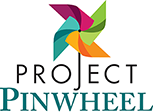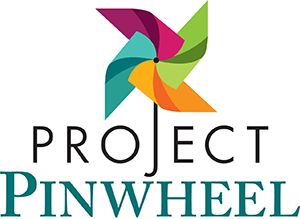Some people struggle with sexual thoughts and behaviors towards children. Perhaps you know you are touching children inappropriately or have been looking at child pornography online. Are you someone who wants to stop these thoughts and behaviors but does not know how? Having sexual urges towards children can be scary, confusing and contribute to a sense of feeling out of control. There is help available. The first step is deciding whether you have a problem.
1. Do I have a problem?
What are you thinking?
- Have you ever told yourself “he/she is mature for his/her age” or something similar to make yourself feel better about your sexual thoughts or behaviors toward children or teens?
- Have you ever wanted to stop fantasizing about or touching children or teens in a sexual way, or looking at child pornography, but did it again?
- Do you find that romantic/sexual fantasies about, or sexual behavior towards, children or adolescents interferes with your relationships at home or work?
- Does your sexual attraction to children conflict with your spiritual beliefs or moral values?
- Has your sexual attraction to children ever left you feeling worried, frightened, ashamed, hopeless, alienated from others or suicidal?
- Have you ever felt that your life would be better if you were not sexually attracted to children?
What are you doing?
- Have you ever felt a sexual attraction to children or teens?
- Have you kept secrets from others about your attractions?
- Have you looked at or purchased pornography that featured children?
- Have you shown pornography (or material of a sexual nature) to children/teens or intentionally left it where they could find it?
- Have you ever secretly watched children or exposed yourself to children or teens?
- Have you bought children or adolescents gifts, or given them money, in order to get them to trust you and like you so you can touch them sexually?
You probably know if you need help even before you tally the yes responses to the questions. Help is available. If you start with one of the resources below, you’ve officially taken the first step towards protecting kids and yourself.
2. Does treatment work?
Can those who sexually abuse children stop it? Yes, but in order to stop, people who sexually abuse children must want to change and must be able to get specialized treatment. In many cases, offenders aren’t “cured” but rather learn how to control their impulses to offend, much like alcoholics learn how to manage their desire to drink. Adults, adolescents, and children with sexual behavior problems can change their abusing behavior. They can learn to live healthy, productive lives in which they no longer harm innocent children.
3. Where can I get help?
Help Wanted – The Help Wanted Prevention Project is an online course to provide help to adolescents and young adults attracted to younger children. The course is supported by the Moore Center for the Prevention of Child Sexual Abuse, Johns Hopkins Bloomberg School of Public Health and by RALIANCE. This work was developed by the faculty and staff at the Moore Center in collaboration with other national and international experts, people with sexual interest in children, and survivors of child sexual abuse.
Child Molestation Research and Prevention Institute – offers resources and referrals to treatment providers for both adolescent and adult sexual offenders.
Colorado Sex Offender Management Board (SOMB) – The SOMB develops standards and guidelines for the evaluation, treatment, and behavioral monitoring of sex offenders.
Sexual Offense Resource Services (SORS)- provides outpatient treatment for adult sexual offenders. Our services are designed for those clients court-ordered into sexual offense specific treatment. The most comprehensive outpatient program available in Colorado, highly trained staff registered with the Colorado Sexual Offender Management Board (SOMB) operate the SORS program.
Association for the Treatment of Sexual Offenders: The Association for the Treatment of Sexual Abusers is an international, multi-disciplinary organization dedicated to preventing sexual abuse. Through research, education, and shared learning ATSA promotes evidence based practice, public policy and community strategies that lead to the effective assessment, treatment and management of individuals who have sexually abused or are at risk to abuse.
Colorado Service Group -A site listing 12 step recovery programs dealing with sex and love addictions in the state of Colorado
Center for Sex Offender Management –The Center for Sex Offender Management’s (CSOM) goal is to enhance public safety by preventing further victimization through improving the management of adult and juvenile sex offenders who are in the community. The Center for Sex Offender Management is sponsored by the Office of Justice Programs, U.S. Department of Justice. CSOM is administered through a cooperative agreement between OJP and the Center for Effective Public Policy.

